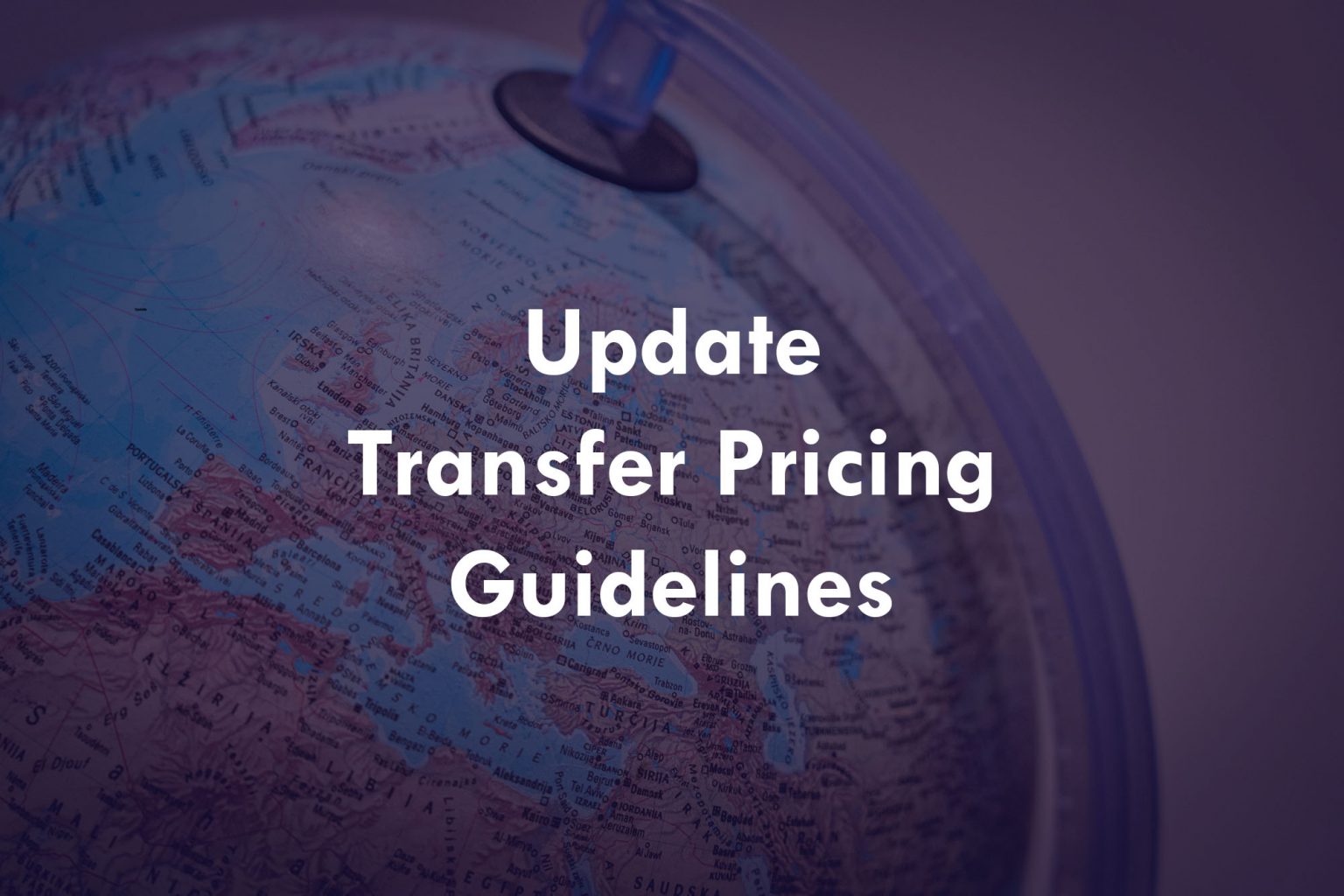On Thursday the 20th of January 2022 the Organisation for Economic Co-operation and Development (also known as: ‘OECD’) released an update to the OECD Transfer Pricing Guidelines for Multinational Enterprises and Tax Administrations. This update mainly incorporates earlier released documents, but it also makes some consistency changes to the OECD Transfer Pricing Guidelines of 2017. These consistency changes were needed to produce the consolidated version of the Transfer Pricing Guidelines and were approved by the OECD/G20 Inclusive Framework on BEPS on the 7th of January 2022.
The following documents are incorporated in the Transfer Pricing Guidelines 2022:
- The 2018 ‘Revised Guidance on the Application of the Transactional Profit Split Method’;
- The 2018 ‘Guidance for Tax Administrations on the Application of the Approach to Hard-to-Value Intangibles’; and
- The 2020 report ‘Transfer Pricing Guidance on Financial Transactions’
Revised Guidance on the Application of the Transactional Profit Split Method
The guidance set out in this report responds to the mandate under Action 10 of the BEPS Action Plan, which requires the development of:
“rules to prevent BEPS by engaging in transactions which would not, or would only very rarely, occur between third parties. This will involve adopting transfer pricing rules or special measures to: … (ii) clarify the application of transfer pricing methods, in particular profit splits, in the context of global value chains”
Since 2010, the Transfer Pricing Guidelines states that the most appropriate method should always be used. This method can be (among others) the profit split method. This revised guidance provides clarification and significantly expands the guidance on when a profit split method may be the most appropriate method. It describes certain indicators such as the unique and valuable contributions each party makes to the transaction and the share of economically significant risk. Furthermore, the revised guidance includes several examples illustrating the principles discussed.
Guidance for Tax Administrations on the Application of the Approach to Hard-to-Value Intangibles
BEPS Action 8 addresses transfer pricing issues to controlled transactions involving intangibles, since intangibles are by definition mobile and they are often hard-to-value which makes base erosion and profit shifting possible. The OECD states that misallocation of these profits has heavily contributed to base erosion and profit shifting.
The hard-to-value intangibles approach disarms the negative effects of information asymmetry, by ensuring that tax administrations can consider ex post outcomes as presumptive evidence about the appropriateness of the ex-ante pricing arrangements. I.e. administrations can take later outcomes in consideration of the earlier dealt with pricing agreement. At the same time, taxpayers have the possibility to rebut such presumptive evidence by demonstrating the reliability of the information supporting the pricing methodology adopted at the time of the controlled transaction took place. This is to prevent later information to rule over the earlier information, which would certainly subvert the legal security of the taxpayer.
The guidance aims at reaching a common understanding and practice among tax administrations on how to apply adjustments resulting from the application of the hard-to-value intangibles approach. The guidance should improve consistency and reduce the risk of economic double taxation.
Transfer Pricing Guidance on Financial Transactions
The 2020 report on financial transactions pertains to Action 4 and provides guidance in the accurate delineation of financial transactions, particularly in capital structures of multinational enterprises. Furthermore, it analyses the pricing of a controlled financial transaction. The report describes the transfer pricing aspects of financial transactions such as intra-group loans, treasury functions, cash pooling, hedging, guarantees and captive insurance.
Action 4 constitutes the limitations on interest deductions, and aims to limit base erosion through the use of interest expenses to achieve interest deduction or to finance the production of exempt or deferred income.





